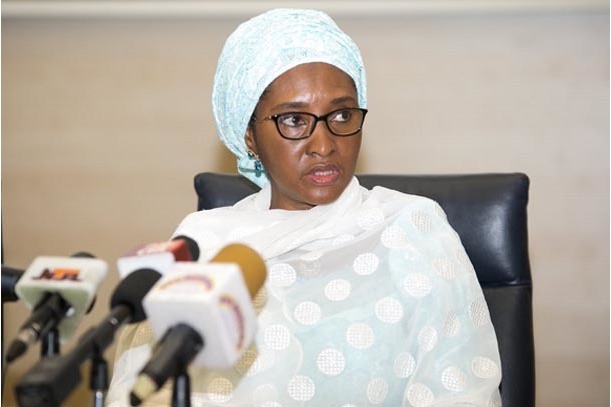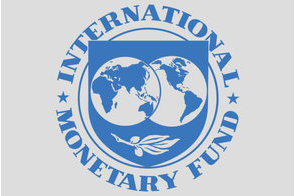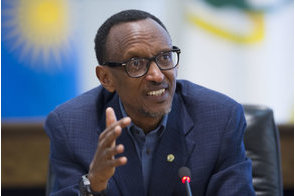Latest News
IMF approves $3.4 billion loan for Nigeria to fight Covid-19

News Highlight
IMF said the facility will support the country’s efforts to address the severe economic impact of the Covid-19 shock and the sharp fall in oil prices.
The International Monetary Fund (IMF) said on Tuesday that its Executive Board has approved Nigeria’s request for emergency financial assistance to the tune of $3.4 billion. The amount is the equivalent of 100 per cent of Nigeria’s assigned IMF quota of 2,454.5 million Special Drawing Rights (SDRs).
The approval came three weeks after Managing Director of the IMF, Kristalina Georgieva, acknowledged Nigeria’s application for the Fund’s facility. While Georgieva said the facility would be drawn from the Rapid Financing Instrument (RFI), Nigeria's Minister of Finance and National Planning, Zainab Ahmed, had announced that the application was made under IMF’s Rapid Credit Facility (RCF).
In an analysis on the loan application, Financial Nigeria’s Managing Editor, Jide Akintunde, noted the discrepancy in the two statements. While the RFI and RCF are both concessional facilities for member countries to tackle economic shocks, they have different disbursement limits with the RCF having a limit of 25 per cent of a nation’s quota. The former also has a bigger allocation of $40 billion, while the IMF earmarked only $10 billion for the latter. In effect, the Minister had misled Nigerians because it was impossible for Nigeria to draw 34 per cent of the entire RCF.
Georgieva said the facility will support the country’s efforts to address the severe economic impact of the Covid-19 shock and the sharp fall in oil prices. In a statement released yesterday, the IMF said the funding will enable the Nigerian authorities to meet the urgent balance of payment (BOP) needs arising from the outbreak of the Covid-19 pandemic. As the global economy faces its worst recession since the 1930s, the Washington DC-based institution has forecast Nigeria's economy to shrink by -3.4 per cent in 2020.
"Even before the Covid-19 outbreak, Nigeria’s economy was facing headwinds from rising external vulnerabilities and falling per capita GDP levels," the IMF said. "The pandemic – along with the sharp fall in oil prices – has magnified the vulnerabilities, leading to a historic decline in growth and large financing needs."
Mitsuhiro Furusawa, IMF's Deputy Managing Director and Acting Chair, acknowledged that additional assistance from development partners will be required to support the government’s efforts and close the large financing gap given the sharp fall in oil prices, which are now trading below $22 per barrel. According to Zainab Ahmed, Nigeria has also applied for a $2.5 billion loan from the World Bank and another $1 billion from the African Development Bank (AfDB) as part of a plan to tap $6.9 billion from multilateral institutions.
The RFI does not require a full-fledged programme. However, the instrument allows for technical assistance to build member country’s capacity to implement comprehensive macroeconomic policies. The $3.4 billion approved for Nigeria is 44.5 per cent of the total amount the IMF has approved for Sub-Saharan African countries since the Covid-19 outbreak began. Repayment under the RFI is within 3¼ to 5-year period.
The IMF also urged for the emergency funds to be used for their intended purposes, according to Furusawa. He said implementation of proper governance arrangements – including through the publication and independent audit of crisis-mitigating spending and procurement processes – will be crucial.
“The authorities’ immediate actions to respond to the crisis are welcome. The short-term focus on fiscal accommodation would allow for higher health spending and help alleviate the impact of the crisis on households and businesses. Steps taken toward a more unified and flexible exchange rate are also important and unification of the exchange rate should be expedited," the IMF's Deputy Managing Director noted.
Related News
Latest Blogs
- African banks can leverage intra-African trade if they fix governance gaps
- EFCC and when law enforcement becomes the terror
- How Tinubu Deviates from IMF/World Bank reform recommendations
- Naira commoditisation as CBN's cashless policy flaw
- Why Nigeria’s national DFIs must be recapitalised
Most Popular News
- Artificial intelligence can help to reduce youth unemployment in Africa – ...
- MTN Nigeria records N400 billion net loss in full year 2024 results
- AI Startups account for 43 percent of new unicorns
- Analyst provides mixed reaction to Nigerian equity market performance
- Human Rights Watch says EU Commission waters down corporate rules
- Nigeria records 3.84 percent GDP growth rate in Q4 2024
_-_728x90-202501141438152396.jpg)








